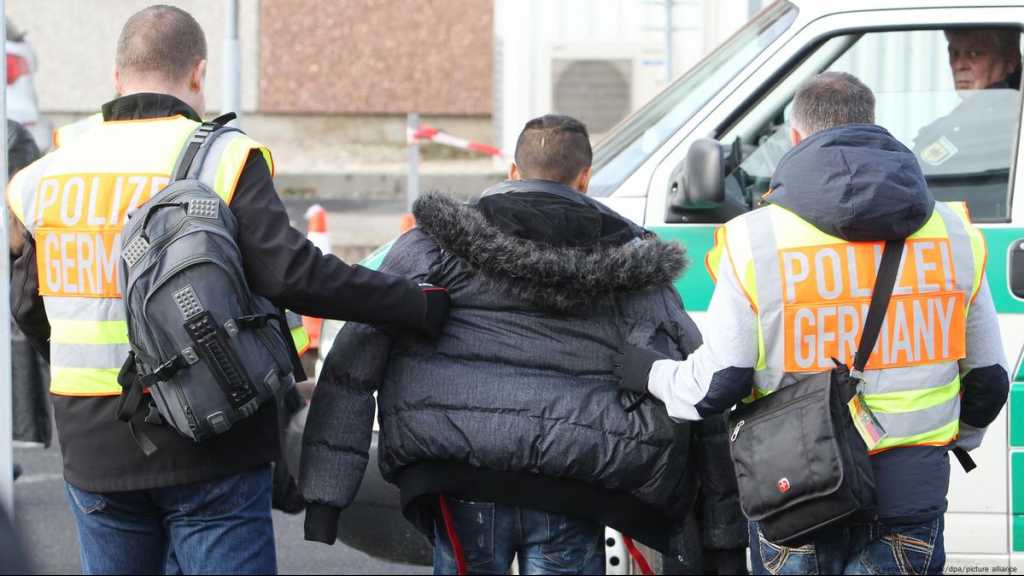
Germany Follows US in Deporting Pro-Palestine Protesters

By Staff, Agencies
German Immigration authorities are working on deporting several foreign residents over their participation in pro-Palestine protests, a move many consider a threat to civil liberties.
The deportation orders, issued under German migration law, came amid political pressure and despite objections from the head of Berlin’s state immigration agency, according to The Intercept.
The internal dispute stemmed from the fact that the four individuals who were targeted for deportation included three who are citizens of European Union member states and typically benefit from the freedom of movement within the EU, and none of the four were convicted of any crime. The four individuals facing deportation are Cooper Longbottom (a US citizen), Kasia Wlaszczyk (a Polish citizen), and Shane O’Brien and Roberta Murray (both Irish citizens).
The deportation order is set to take effect in less than a month.
“What we’re seeing here is straight out of the far right’s playbook,” Alexander Gorski, a lawyer representing two of the protesters said, according to The Intercept. “You can see it in the US and Germany, too: Political dissent is silenced by targeting the migration status of protesters.”
"From a legal perspective, we were alarmed by the reasoning, which reminded us of the case of Mahmoud Khalil," Gorski said, referring to the Palestinian Columbia University graduate and US permanent resident who was arrested at his apartment over allegations tied to his pro-Palestine activism on campus.
Under German migration law, authorities can issue deportation orders without a criminal conviction, according to Thomas Oberhäuser, a lawyer and chair of the German Bar Association's migration law committee, though the reasons must be proportional to the severity of deportation, considering factors like family separation or loss of livelihood.
According to The Intercept, the four protesters each face distinct allegations from authorities, all based on police files and linked to pro-Palestine activities in Berlin, with some—but not all—potentially amounting to criminal charges under German law, though nearly none have reached a criminal court.
The only link between the four cases is the claim that the protesters participated in the occupation of a building at the Free University of Berlin, which allegedly involved property damage and an attempted "de-arrest"—an effort to block the detention of a fellow demonstrator. None of the protesters were specifically accused of vandalism or directly carrying out the de-arrest.
The deportation order, rather than citing specific acts, hinges on the broader suspicion that the protesters were involved in a coordinated group action, suggesting their mere participation in collective activities could justify the measure, even in the absence of direct evidence tying them to individual offenses.
German authorities have accused all four protesters of supporting Hamas, which Germany has classified as a terrorist organization, though they have not provided evidence for this claim.
“What we’re seeing are the harshest possible measures available, based on accusations that are extremely vague and in part completely unfounded,” Groski said.
Gorski noted that, in a first-of-its-kind decision, three of the four deportation orders invoked Germany's constitutional commitment to protect "Israel"—known as Staatsräson or "reason of state"—as legal grounds for expulsion.
Oberhäuser emphasized that *Staatsräson* functions as a political principle rather than binding law, pointing to a parliamentary analysis that found no legal force in the provision while arguing that its use in deportation cases raises serious constitutional concerns.
Comments

France Launches New Probe Linked to Le Pen Trial
22 hours ago
